Jan. 17, SOHR claims Turkey govt stopping Libya-based Syrian mercenaries to return home, blackmailing them with unpaid, cut salaries.
Jan. 20, Tripoli-based Central Bank of Libya Governor Al-Kabir, eastern CBL branch counterpart Al-Hibri sign agreement on four-stage reunification plan.
HoR Speaker Saleh say GNU expired, to be replaced.
Jan. 21, suspicious military movements detected in Tripoli, militia-controlled areas in W Libya.
TRIPOLI
- Jan. 21, suspicious military movements were witnessed in Tripoli and the militia-controlled areas in western Libya Jan. 21 evening. On social media several activists circulated videos published by local media, about the arrival of armed columns and a large number of military vehicles and tanks. These crossed Khoms city heading to Tripoli, coming from Misrata. The movements came in conjunction with a meeting held by the Commanders of the armed militias controlling the West of the country. This meeting was held in Tripoli, in the presence of Ghenewa al-Kikli, Ayoub Bouras and Mustafa Kaddour at Al-Mahari Hotel. It occured at a time when internal and external forces are seeking to set a deadline for holding the elections.

NATIONAL SECURITY
- Jan. 21, Meta Platforms, Facebook’s parent company, took down a network of bogus accounts originating in Turkey. The network of phoney accounts is thought to have targeted Instagram users in Libya, where, the network created false accounts to mimic locals. The accounts organised their content around common hashtags, albeit they occasionally misspelt them. Some false identities, utilised profile pictures made using AI, while others used photos of media personalities and celebrities;
- Special Adviser to the United Nations Secretary-General on Libya (SASG), Stephanie Williams confirmed that the presence of mercenaries in Libya has caused severe political, social, security, and military crises. She noted that removing them is important, but it should not be a condition for holding the elections;
- Jan. 17, the Syrian Observatory for Human Rights (SOHR) claimed that the Turkish government continues to ban vacations or leave for its Syrian mercenaries in Libya, despite numerous requests to return home. The repeated demands by Syrian mercenaries in Libya are met by deafening silence, as “the Turkish government works on blackmailing the mercenaries by not paying their agreed-upon salaries to keep them in Libya for a longer period.” Many of the mercenaries have called on their commanders to return them to Syria, according to SOHR sources;
- Major General Khaled Al-Mahjoub, Director of Moral Affairs in the Libyan National Army (LNA), announced the arrest of an arms dealing gang working with “extremist groups” in Algeria and Mali. Al-Mahjoub said in a statement that an LNA unit arrested the group after setting up an ambush near the Algerian border. Weapons and explosive materials were seized during the operation.
NATIONAL POLITICS AND SOCIAL ISSUES
- Jan. 20, the Governor of the Tripoli-based Central Bank of Libya (CBL), Al-Siddiq Al-Kabir and his counterpart at the eastern CBL branch, Ali Salim Al-Hibri signed an agreement on a four-stage plan for reunification, including the appointment of an external consultant. The two banks said they had taken important steps, such as unifying their boards of directors, and adding that work by the technical committees has begun;
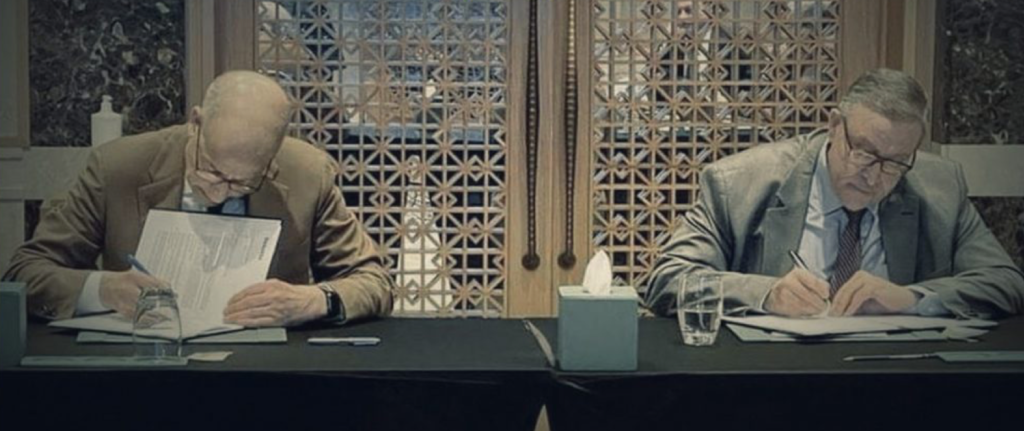
- Jan. 21, the Roadmap Committee formed by the Libyan Parliament met with the United Nations Support Mission in Libya’s (UNSMIL) technical team. They discussed technical support that the Roadmap Committee may need for the legal and constitutional processes for the elections. The UNSMIL team included the heads of the rule of law departments, and the political department of the mission;
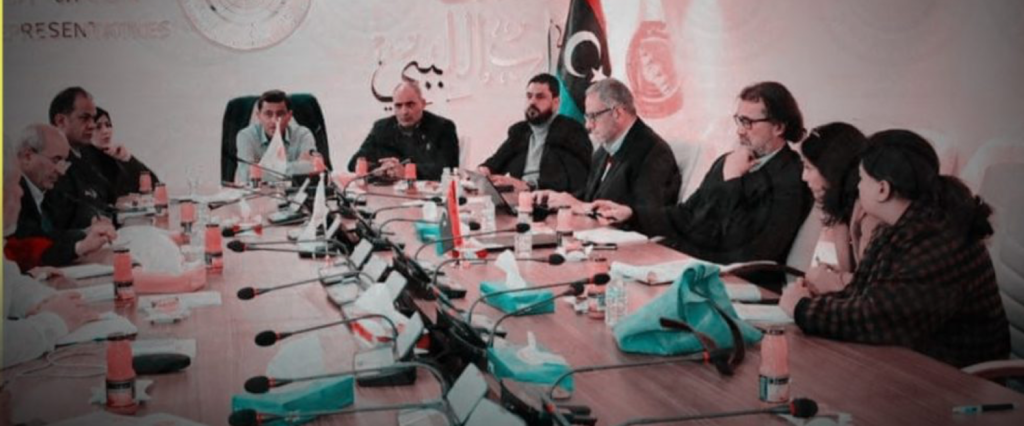
- The Libyan Public Prosecution has announced that it has ordered the arrest of the Chairman of the Management Committee of the General Authority of the Social Solidarity Fund, pending ongoing investigations regarding alleged financial abuses. The Attorney General’s office stated that the arrest came after a report was submitted by employees of the Al-Amal School for the Deaf and Hard of Hearing, and representatives of the People with Disabilities Movement, over financial deductions in their salaries;
- Jan. 17, the Head of Libyan High National Elections Commission (HNEC), Emad Al-Sayeh announced that 12 cases of fraud were discovered in the country’s Presidential and Parliamentary elections. These have been referred to the Attorney General;
- Libyan Parliament Speaker, Ageela Saleh stated that the Government of National Unity (GNU) has expired, and must be reconstituted. Jan. 17, during his Presidency of the Parliamentary session, Ageela Saleh confirmed that the Parliament is working on developing a new roadmap to complete the electoral process for a new Government. This is in coordination with the High National Elections Commission (HNEC), the Supreme Judicial Council, the Ministry of Interior, and the security services.
INTERNATIONAL RELATIONS
- The newly appointed Libyan Ambassador to Greece, Hamad Bashir Al-Mabrouk presented his credentials Jan. 19 to Greek President, Katerina Sakellaropoulou. Foreign Minister Miltiadis Varvitsiotis and the General Secretary of the Hellenic Republic Presidency, Ambassador Vassilios Papadopoulos attended the ceremony, according to Greek City Times;

- Libyan Interior Minister, Khaled Mazen met with the German Ambassador to Libya, Michael Ohnmacht and his accompanying delegation in Tripoli. They discussed prospects for security cooperation between Libya and Germany in information exchange, combating illegal migration, money laundering, and human rights. The meeting between the Germany Ambassador and the Libyan interior minister also discussed the issue of training and support for the Criminal Investigation Agency, the Narcotics and Psychotropic Substances Control Service, and the General Administration for the Protection of Diplomatic Missions;
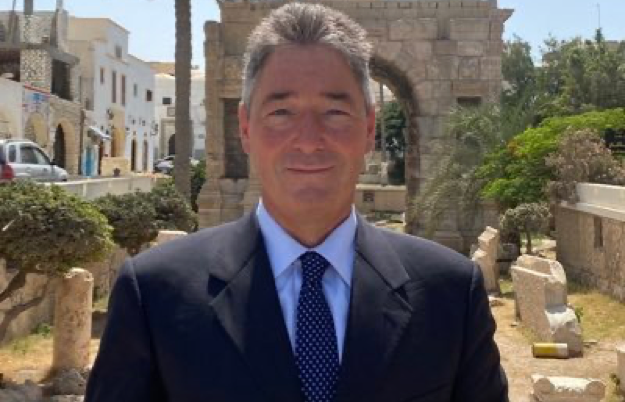
- Spokesman for the Egypt Ministry of Electricity and Renewable Energy, Ayman Hamza revealed a proposal to raise the voltage of the electric line with Libya from 220 to 500 kV. This is so that the exchange capacity would be increased to 2,000 MW. In statements to ‘Youm 7’, Hamza added that 100 MW are currently being transferred at a voltage of 220 kV on the current interconnection line. The capacity was raised in January of 2020 to 150 MW;
- Lawyers on behalf of several NGO’s have filed a complaint to the International Criminal Court (ICC), alleging that Italy and Malta assisted the Libyan Coast Guard in intercepting migrants at sea. The lawyers are representing Dutch NGO Uprights, France’s Adala For Al, and Italy’s StraLi, according to Malta Today. Italian and Maltese officials were accused of having “acted in a coordinated manner with the Libyan Coast Guard in the recovery of migrants to ensure that they were intercepted and returned to Libya;”
- The Head of the Transitional Military Council in Chad, Mohamed Idris Deby confirmed that a national dialogue between all Chadian movements will start next month in the Qatari capital, Doha. Regarding the fate of the Chadian armed groups present in Libya, he said that these movements are welcome to return and participate in state-building, “provided that they are disarmed on the borders.” Deby stated that he believed the solution in Libya must be Libyan-led, and that all foreign fighters and mercenaries should leave the country and allow the people to determine their future;

- Italy Deputy Foreign Minister, Benedetto Della Vedova said that he supports the political stability process in Libya by fully encouraging the decisive role of the United Nations in the country. Della Vedova added that Italy is committed to developing the southern dimension of the European neighbourhood policy, for a true Mediterranean partnership. This is in addition to strengthening cooperation with the south, and deepening areas of cooperation between the two sides;
- Jan. 17, Libyan Prime Minister, Abdel-Hamid Dbaiba announced the reopening of the UAE Embassy in Tripoli. Dbaiba received the new UAE Ambassador to Libya, Mohamed Al-Shamsi and confirmed that Libyan nationals can apply for Emirati visas online. The two sides agreed to resume the work of the Libyan-Emirati Higher Committee, which is concerned with strengthening bilateral cooperation. The meeting was attended by Libyan Foreign Minister, Najla Al-Mangoush;
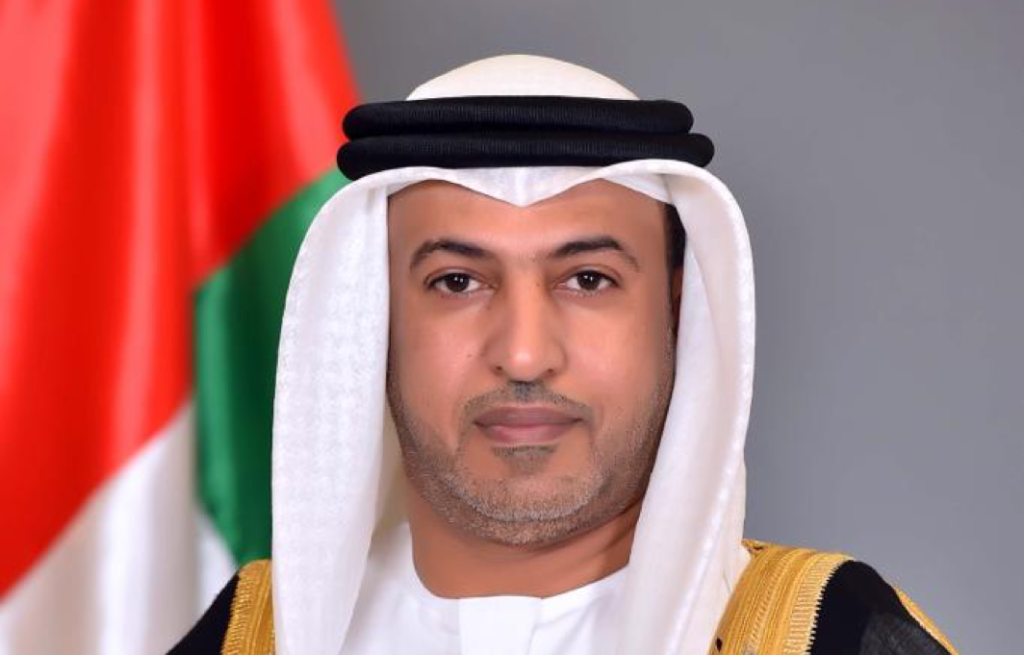
- Jan. 22, the investigating judge at the Court of First Instance in Tunis begun his investigation into the circumstances of the extradition of Muammar Gaddafi’s former Prime Minister, Al-Baghdadi Ali Al-Mahmoudi, to Libya. According to information received by MosaïqueFM, the decision came after authorization was granted by the Tunisian Minister of Justice, Leïla Jaffal, to the Attorney General of the Court of Appeal of Tunis. The Attorney General authorized the Public Prosecutor to open an investigation, which was entrusted to the investigating judge of the Court of First Instance of Tunis;
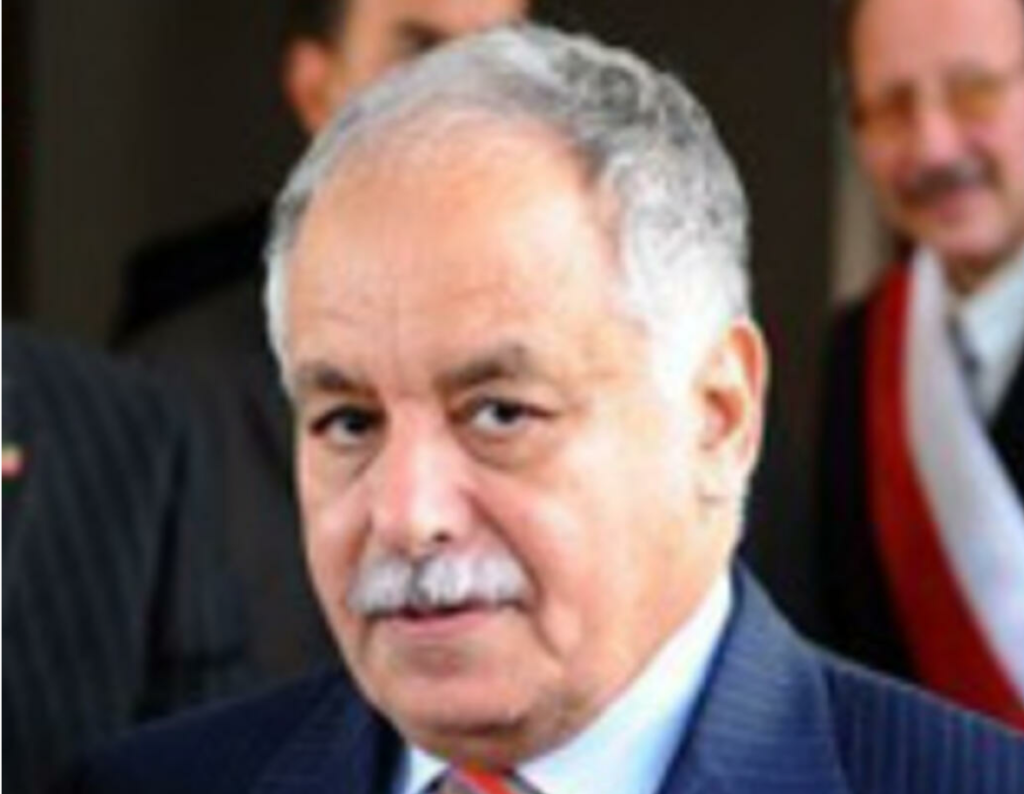
- Jan. 22, a Belgian judge issued an international arrest warrant for the Chairman of the Libyan Investment Authority (LIA), Ali Mahmoud, as part of an investigation into the management of Libyan assets frozen in Belgium after the fall of the Gaddafi regime in 2011. The Brussels Prosecutor’s Office confirmed the warrant after it was issued this month against the Chief of the sovereign wealth fund responsible for managing Libya’s assets and foreign investments.























